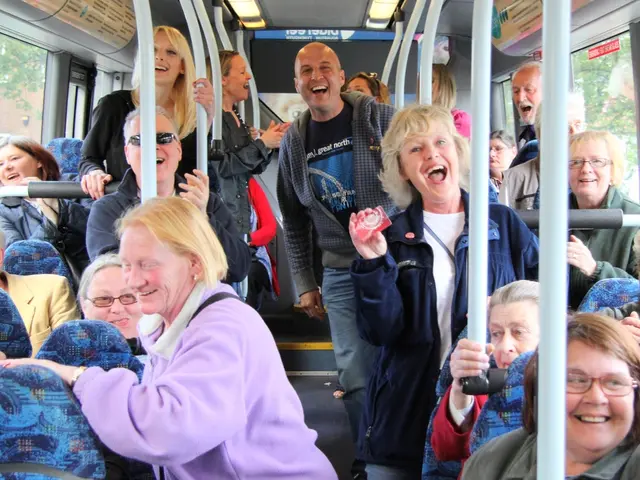Discussion on the Distinct Implications of Cerebral Strokes in the Left and Right Hemispheres
The Cerebral Cortex, the largest section of the brain, is responsible for functions such as voluntary movement, sensation, language, memory, thinking skills, problem-solving abilities, emotional responses, and more. Other parts of the brain handle automatic tasks like breathing, heart rhythms, and reflexes.
The cerebral cortex is crucial in making individuals unique. A stroke in this area can lead to alterations in personality, reasoning, speech, and more, effectively robbing a person of their self.
"Stroke is a serious emergency, but the aftermath can vary from unnoticeable to debilitating," explains vascular neurologist Shazam Hussain, MD. "The severity and location of the stroke significantly influence recovery and long-term effects."
Strokes are often categorized as left or right-hemisphere strokes. What sets these apart, and what can one anticipate if affected by either?
Dr. Hussain delves into the differences.
Left vs. Right Brain Strokes: The Distinction
A stroke transpires when blood flow is disrupted to specific brain regions, akin to a brain's version of a heart attack.
"When brain regions lack sufficient blood, cells in that area become damaged and may die," Dr. Hussain clarifies. "Extensive cell death can lead to the loss of related abilities."
Both the severity of damage caused by the stroke and the functional specialization of brain hemispheres play key roles in the observed effects.
Left-Brain Stroke
The left hemisphere primarily governs communication skills like coherent sentence formation and understanding spoken language. It also plays a part in problem-solving, strategizing, and analyzing. The left hemisphere controls movement on the right side of the body.
Left-hemisphere strokes are often more noticeable than right-hemisphere strokes, with common effects such as aphasia (difficulty speaking), paralysis or weakness on the right side of the body, and difficulties with reading, writing, and dealing with numbers.
Right-Brain Stroke
The right hemisphere controls movement in the left side of the body. It oversees emotions, imagination, and spatial orientation.
Common effects of right-brain stroke may include weakness or paralysis on the left side of the body, neglect of the left side of the body, changes in mood, impaired spatial orientation, and difficulty recognizing familiar spaces.
Rehabilitation strategies, including speech therapy, physical therapy, occupational therapy, and cognitive therapy, can aid stroke survivors in recovering function and adapting to changes in their abilities. Effective management of chronic conditions and appropriate medication can also help in recovering from strokes and preventing future occurrences.
"Caring for someone undergoing significant changes after a major stroke can be taxing, both physically and emotionally," acknowledges Dr. Hussain. "Open communication with medical professionals is essential, along with taking care of your physical and mental health during this challenging time."
In the event of a left-brain stroke, individuals might experience difficulties speaking coherently, understanding spoken language, problem-solving, and analyzing. This type of stroke can also lead to paralysis or weakness on the right side of the body, as well as difficulties with reading, writing, and dealing with numbers.
On the other hand, a right-brain stroke may cause weakness or paralysis on the left side of the body, neglect of the left side of the body, changes in mood, impaired spatial orientation, and difficulty recognizing familiar spaces.
It's crucial to seek out rehabilitation strategies such as speech therapy, physical therapy, occupational therapy, and cognitive therapy to aid in recovery and adaptation to changes in abilities following a stroke. Additionally, managing chronic conditions and utilizing appropriate medication can contribute significantly to recovering from strokes and preventing future occurrences. Taking care of one's physical and mental health during this challenging time is essential.








